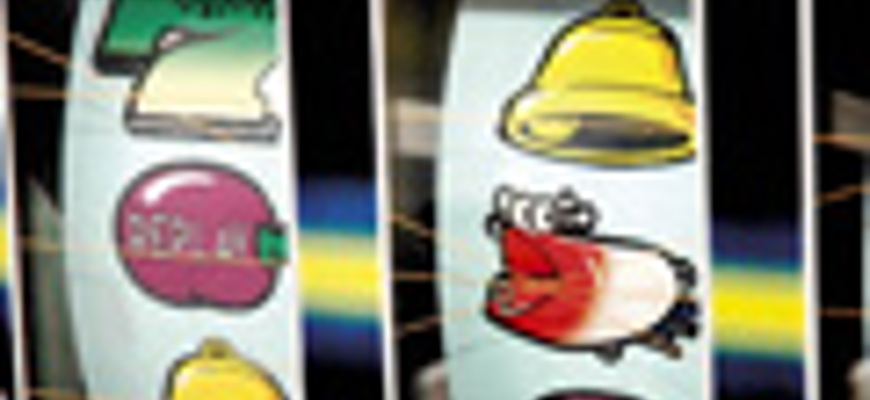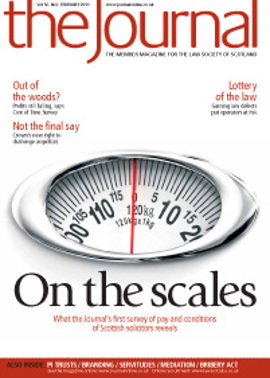Rage against the machine?

Getting to grips with gambling law can sometimes feel like standing, eyes blinking, in front of a flashing fruit machine. Unless you know what (or who) to nudge, your chances of hitting the jackpot are slim. Practitioners continue to struggle with drafting errors that in some cases mean our clients are operating illegally through no fault of their own. Westminster draftsmen did not fully cater for the separate Scottish alcohol regime under the old Gaming Act 1968, and it was hoped that the exciting new world of the Gambling Act and Licensing (Scotland) Act, both passed in 2005, would end this sort of piffle. Sadly, the oversights persist not only from Westminster, but from Holyrood too.
An awkward example of such drafting malaise (or political ambivalence – whichever you prefer), is the bizarre situation that the new “licensed premises gaming machine permit” is in fact illegal to issue and use. This permit allows three or more gaming machines to be used in alcohol-licensed premises such as pubs. The illegality arises because the relevant regulations (SSI 2007/505) allow for this permit only where there is a “relevant alcohol licence”, and that term is defined as a liquor licence (except an off sale licence) under the old 1976 Act.
The instrument does not reflect that there are no 1976 licences in force, and although the Licensing (Scotland) Act 2005 came into force way back on 1 September 2009, the instrument has yet to be updated.
This is all the more disappointing given that the instrument was made on 1 November 2007, almost a full two years after the passing of the 2005 Act. On top of this, a Consequential Provisions Order arising from the 2005 Act, which updated a whole host of provisions, saw fit to amend the principal Gambling Act’s definition of “relevant alcohol licence” (s 277 to be precise) as regards the use of two machines or less (SSI 2009/248), but not the regulations relating to the use of three machines or more.
Illegal and ignored
Journal readers will be familiar with the shrieks of agony from licensing practitioners being exorcised in these pages and elsewhere. It seems to me that Holyrood has been falling over itself to make hay with big alcohol headlines and being seen to address the “binge culture”, but when it comes to sorting out the technical stuff, there is less enthusiasm.
In fairness, the “three or more machine” permits are not particularly common, but the problem does not just affect those machines – a similar, but more lethal, lapse has occurred with the Club Gaming and Club Machine Permits Regulations (SSI 2007/504). The club gaming permit relates to certain types of high-level gaming which may be offered in members’ clubs and miners’ welfare premises, and the club machine permit relates to B category gaming machine use – typically higher jackpot machines, offering as much as £250 for a £1 stake. The instrument, as it stands, allows for such permits only where the club premises is a holder of a 1976 Act registration or 1976 Act licence.
This oversight means that licensing boards issuing these permits after 1 September 2009 have done so illegally, and that operators providing machines (or in a club setting, providing the high-level gaming) in reliance on such permits since that date are doing so illegally. This problem has been acknowledged by a few licensing boards, but the perceived wisdom is simply to ignore it. What else can they do?
While our old friend the pragmatic approach avoids what would be drastic and perhaps absurd enforcement action against permit holders, that does not make it right, and in my view the legislative process should have sufficient accuracy in the first place to avoid this kind of fudging. The Law Society of Scotland’s Licensing Subcommittee brought this to the attention of the Scottish Government back in September 2010 and again in January 2011.
Licensing civil servants are embattled to say the least, and I accept that this will have been lost in the milieu of the Criminal Justice and Licensing (Scotland) Act 2010 and Alcohol etc (Scotland) Act 2010. I also concede that for MSPs, fixing a couple of piddly wee gaming machine SSIs is not top priority. But if you think that only gambling law nerds (like me) are really interested in all this, think again – the suffering licensed trade, and especially the not-for-profit clubs, rely on the income that these machines generate, and if there was a mass “switch off” (presuming anyone enforced the law correctly), this would be devastating not only for the pubs and clubs using the machines, but devastating for the machine suppliers who are in turn almost exclusively reliant on the licensed trade.
Gaming operators – the wider picture
The wider picture of this industry can sometimes be forgotten. Arcades reported substantial drops in revenue over the last year or so, and jobs have been lost across the UK. My arcade clients tell me that this is because of the bookie’s new ability to offer the new category B3 machine, which in many cases looks like electronic roulette and replaced what was known as a fixed odds betting terminal. As the jackpots are so much higher, people have deserted the machines in arcades and bingo halls in favour of these bookie machines.
There is some cheer to be had. Westminster has recognised that this industry needs help, and fast, and in January a consultation on this sector closed. The proposal is, in simple terms, to allow more machines with an increased minimum stake and this would be a timely shot in the arm for these operators. Watch this space.
Also, face-to-face operators are encouraged by indications that people are rebelling against online gambling, in favour of the personable, social and enjoyable gambling experience that can be had in the company of one’s fellow humans. There seem to be early signs of a rediscovery, of sorts, of the old fashioned tactile joys of gambling as a social leisure pursuit, with premises such as bingo halls and casinos viewed more as a destination venue where one can enjoy a number of activities among friends, whether gambling or not.
The tax man cometh
As all this is happening, the coalition Government’s drive to diminish the deficit includes a revamp to the way in which gaming machine revenue is taxed. The old amusement machine licence duty (AMLD) is to be replaced with a new gross profits tax called machine gaming duty (MGD). Of course, the level the tax is set at will decide whether operators pay more or less under the new system (I know which I think it will be), but the proposal is to create two new bands for this tax: a higher band for operators of category A, B and C machines, and a lower band which includes D machines and, controversially, skill machines.
The archetypal skill machine is the pub quiz machine. Skill machines are exempt from AMLD because they are not “gaming” machines – you win money based on your judicious or showy exercise of skill, or on a demonstration of your fabulous grasp of trivia, not on chance. The taxman has recently tried to argue that these skill machines do have an element of chance (and are therefore gaming machines), due to the random electronic generation of quiz questions, but that argument seems to have been brushed under the table now that a whole new regime is proposed.
The bad news is that because the new regime does not tie the tax to the old question of whether there is “gaming”, it means skill machines are certainly caught, and if profits from these are to be taxed, this could have a deleterious impact on the use of these machines at all. Will a publican bother to hire a quiz machine if its profits are suddenly taxed? I fear that if the new tax band is set too high, it could be the death knell for the humble pub quiz machine.
It also seems somewhat unfair for the higher tax band to encompass the massive jackpot machines under category A – we are talking £4,000 casino slots here – and the standard pub fruit machines under category C, which at the moment have maximum jackpots of £70. Even the category B machines (which you can find in members’ clubs and bookies, for example) can only offer jackpots up to £250. It seems to me that if the Gambling Act has created four categories of machine due to the nature of those machines, then any new tax regime should reflect that, with four bandings instead of two.
On 11 January the Treasury announced that the tax would feature in the 2012 Finance Bill, presumably to allow this industry, an industry which represents 27% of the gambling market share and, at the UK level, employs around 10,000 people, to prepare.
In this issue
- Mutuality in action
- Tough choices
- Show us the files
- RoS launch business eZine
- Rewards of the job
- Pressure points
- Measure for measure
- Rage against the machine?
- Second bite at the cherry
- Personal injury trusts: benefits and PITfalls
- Countdown for Legal Aid Online
- Training: SYLA will play its part
- Law reform update
- Branding or bragging?
- The learning curve
- Ask Ash
- Mediating retirement
- CICA - a question of timing
- The evidence against
- Fought all the way
- Family friendly
- Stakes too high
- Much ado about plenty
- Limits of authority
- Scottish Solicitors' Discipline Tribunal
- Website review
- Book reviews
- Straight dealing
- Servitudes, developers and flexible rights






